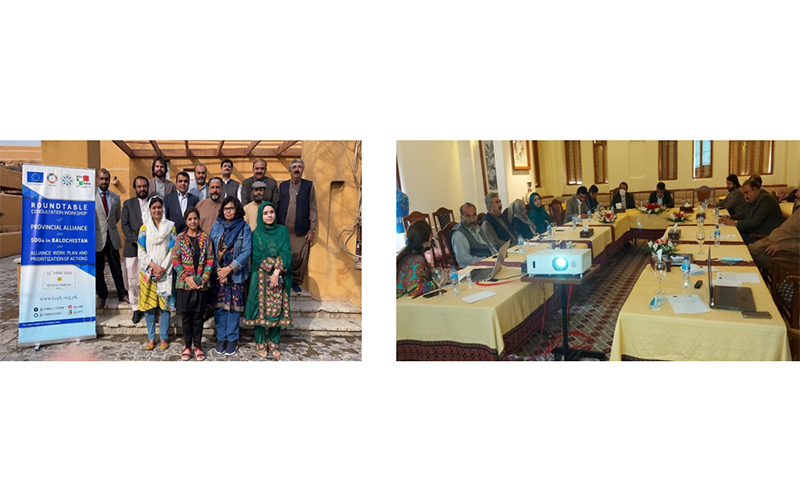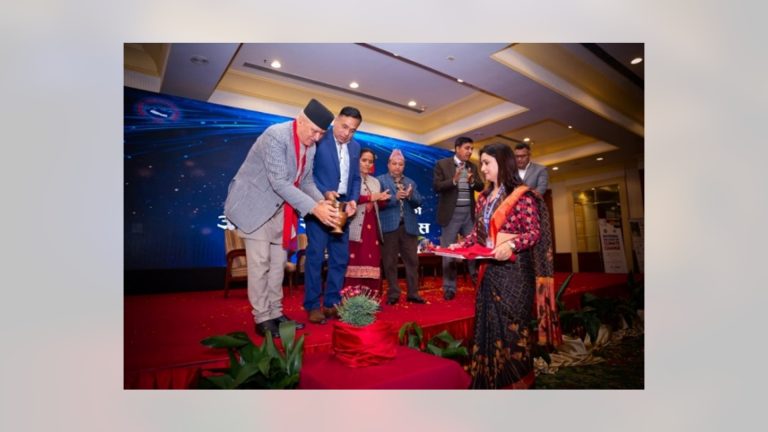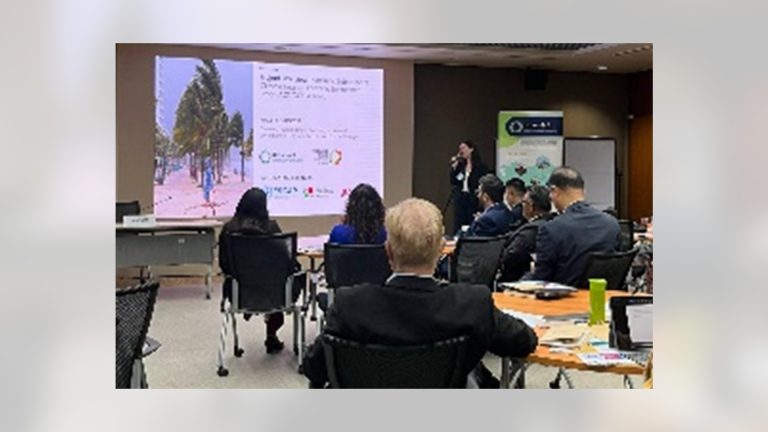11-12 March 2021 | Balochistan – LEAD for SDGs Localisation, a collaboration programme of the European Union (EU) and UCLG ASPAC, implemented in cooperation with national and provincial Local Council Associations (LCAs) in Pakistan, proceeded with three activities on advocacy and capacity building at Quetta, Balochistan Province on 11-12 March 2021. The events got huge exposure on print, electronic and social media in Quetta, Balochistan.
I. Roundtable Consultation for Strategy Implementation in Balochistan
11 March 2021 – Roundtable consultations were organised with members of the Local Council Association Balochistan (LCAB) and Provincial Alliance at Quetta, Balochistan. Participants included LCAB Executive Committee, Board Members, Core Committee of the Provincial Alliance on SDGs in Balochistan (PASB), and LEAD team. With LCAB, meeting aimed at validation for the LEAD for SDGs Programme Advocacy Strategies and Prioritisation of Action Plan in Balochistan; while with PASB, the consultation aimed at underpinning the next six months advocacy and awareness actions of the alliance for SDGs localisation in Balochistan.
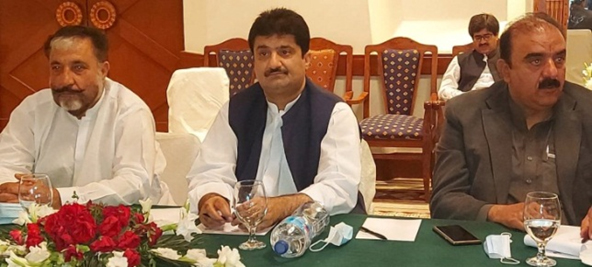
Consultation with LCAB
Mr. Anwar, CEO of the Association for Development of Local Government (ADLG) highlighted the EU’s positive support to local government in providing the best services to the communities. LEAD for SDGs programme aims to help local governments and local government associations implement and achieve the SDGs in Pakistan generally and in Balochistan and Sindh particularly.
Mr. Abid Lehri, President of LCAB mentioned that it is a feasible time to raise our voice and make it stronger for an effective Local Government Act in Balochistan as the election of local government is expected in 2021.
Throughout the discussion, participants agreed on SDGs achievement through effective leadership at the local level. They acknowledged the mandatory as representatives of local government to advocate, with every person in Balochistan, particularly who has power/authority, that the local government is part of the government and that local development is not possible without local leaders’ engagement. Participants also acknowledged that SDGs localisation is all about local development and they, united as LCAB, demand not only local development but also sustainability through the development of feasible local policies and systems.
Following the discussion, participants, who are local political leaders, prioritised few actions needed for LCAB advocacy for the next six months, devised methodology for the implementation, and identified actors whose opinions and actions influence policymakers through public dialogues and awareness by engaging local journalists/media, Provincial SDGs Alliance in Balochistan and public.
Consultation with PASB for next six months Action Plan
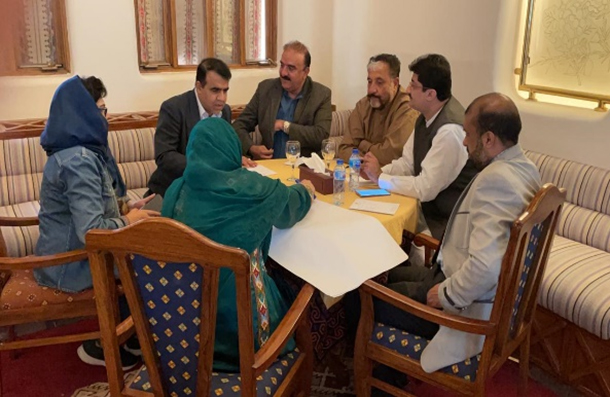
Mr. Fida Husain Dashti, Vice-President of LCAB welcomed participants of the consultation and appreciated the opportunity of formulating Provincial Alliance on SDGs in Balochistan by the LEAD for SDGs programme to influence the decision makers and shaping the public opinion for sustainable local development. He acknowledged that the government of Pakistan is committed to the achievement of SDGs, but pointed out that they have no realisation towards the crucial role of the local government in SDGs achievement.
The discussion was held among the participants around SDGs localisation in Balochistan that the government of Balochistan has developed SDGs provincial framework with the support of UNDP and has passed legislation on Right to Information and Public-Private Partnership to support the localisation process. But these meetings and decision for localisation policies and frameworks were limited to the closed rooms at the provincial level where public/civil society has no access or participation in the decision making. The participants stressed the significance of the provincial alliance to advocate and lobby with decision makers whose decisions impact people’s lives. The participants agreed on the active adoption of a point of view and a course of action to move forward to the alliance advocacy agenda for the localisation of SDGs.
The key action of the PASB was the collection of alliance members data on SDGs implementation followed by dialogues with the provincial government of Balochistan on inclusive approach and recognition of different stakeholders’ contribution in SDGs achievements in Balochistan.
In the meeting, representatives of LCAB and PASB agreed to carry out few actions together to show important roles of the local government, tangible contribution in SDGs implementation, and continuation of local government system at the local level in Balochistan. Following the discussion was identification of the next six months action, devising the methodology, and role identification of the focal persons for actions implementation.
II. Training Workshop on Localisation of SDGs and Processes of District Plan Development in Balochistan
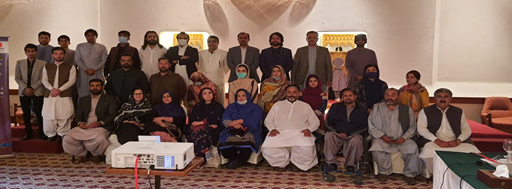
12 March 2021 – One-day training workshop was organised for members of PASB and Executive Members of LCAB. A total of 30 participants included the representative of local government, media, civil society, the UN, and the chamber of commerce participated in the training. The training workshop aimed at enhancing knowledge on SDGs localisation and district plan development processes of PASB and LCAB members.
Supported by UNDP sub-office Balochistan, the training workshop included discussion on what SDGs is, the UN Agenda of SDGs, the five pillars of SDGs, what SDGs localisation is, how to localise SDGs at sub-national and local levels, and review of enabling environment for SDGs localisation in Balochistan province.
At the end of the training sessions, PASB shared their six months course of actions with all alliance members.









